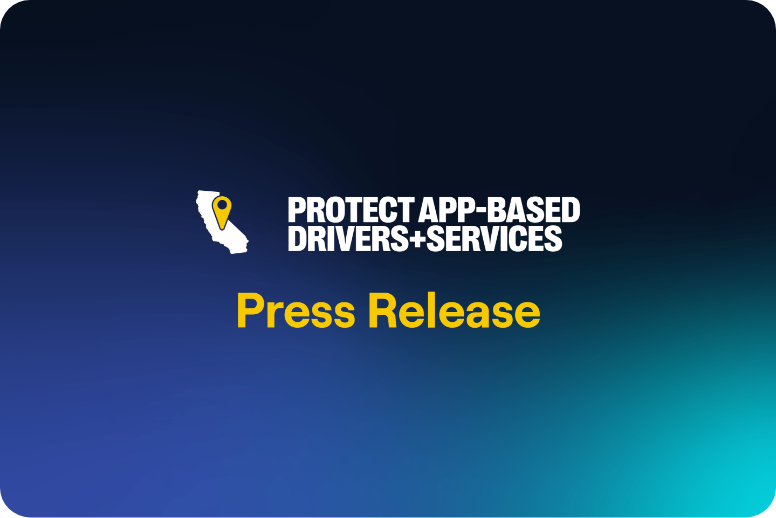SACRAMENTO – There have been a few misinterpretations, misrepresentations – and even an absurd analysis – about the Protect App-Based Drivers & Services Act, the initiative that protects the right of app-based drivers to work as independent contractors, while providing historic new earnings guarantees and protections.
Nearly 10,000 drivers have signed up in less than 24 hours to support this ballot measure because they support the measure’s provisions that protect their flexibility while providing new wage and benefit guarantees. Here are some facts regarding the earnings guarantee:
FACT- The initiative sets an earnings floor, not a ceiling.
- Many drivers will earn far more than 120% of minimum wage. Today, drivers regularly earn more than $20 per hour after expenses and this policy protects and improves that opportunity with more transparency and consistent earnings.
- This initiative provides security for app-based drivers to always earn at least 120% of minimum wage for engaged time, plus $.30 per mile and tips, while preserving the opportunity to earn more with no caps on what drivers can earn.
- Article 3, Section 7453 of the initiative protects drivers’ ability to earn more, “In no way does the net earnings floor prohibit app-based drivers from earning a higher level of compensation.”
- Under the initiative, drivers are also provided a new healthcare stipend and occupational accident insurance.
- FACT – The initiative balances flexibility with more transparent and consistent earnings. If companies were forced to pay for time not working, they’d be forced to end worker control over when, where, and how the work is happening – which would end flexibility for drivers.
- Calculating the minimum earnings guarantee for “engaged time” ensures drivers are paid for the time they’re actually en route to and driving passengers or deliveries, but not for the time when they may have the app open and are not accepting work or are working on another platform.
- If anyone could earn by simply turning on an app without doing any work, then everyone would do it and these services could not exist.
- Drivers are paid by riders when they are performing work and have a direct incentive to earn more by reducing their non-engaged time, which is essential to affordable and reliable service.
- “Waiting time” is not just the time between trips. Drivers are often on a regular commute, running personal errands, have the app inadvertently online, are sitting at home, or are even engaged across multiple platforms during this time.
About the Act
The Protect App-Based Drivers & Services Act would protect the right of app-based rideshare and delivery drivers to work as independent contractors if certain criteria are met, such as having control over their own hours and when, where, how long they work, and the ability to work for multiple companies.
The measure also requires app-based rideshare and delivery service companies to offer new protections and benefits for drivers, including:
- Earnings guarantee for drivers of at least 120% of minimum wage, with the potential to earn more and no limits on how much drivers can make
- 30 cents per mile for expenses such as gas and vehicle wear and tear
- Healthcare stipend consistent with employer contributions under the Affordable Care Act. Drivers begin earning the healthcare stipend after working 15 hours a week
- Drivers who work 25 hours per week or more earn an amount equivalent to 82% of a Covered California Bronze health insurance plan
- Occupational accident insurance to cover on-the-job injuries
- Automobile accident and liability insurance
- Protection against discrimination and sexual harassment
More information is at www.protectdriversandservices.com.
The Latest News

Opinion
I’m an Instacart driver: California Supreme Court must protect my job
By Stephanie Whitfield It may sound dramatic to say that app-based driving saved my life, [...] Read more
News
As Prop. 22 heads to California Supreme Court, support doesn’t break along ideological lines
By Bob Egelko Proposition 22, the 2020 ballot initiative sponsored by Uber and Lyft that [...] Read more